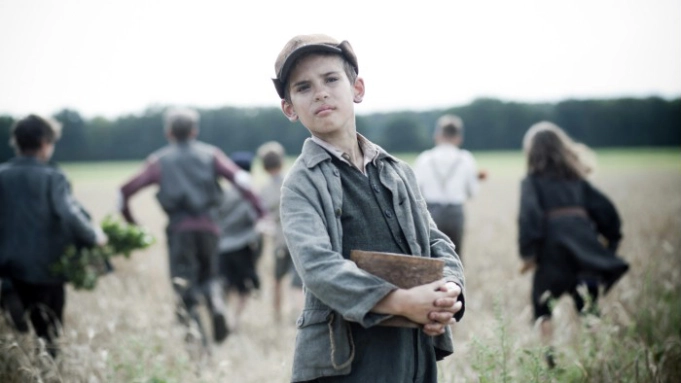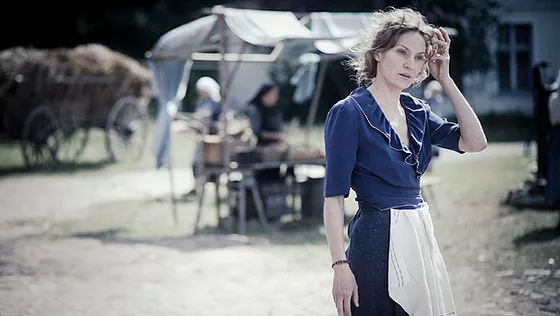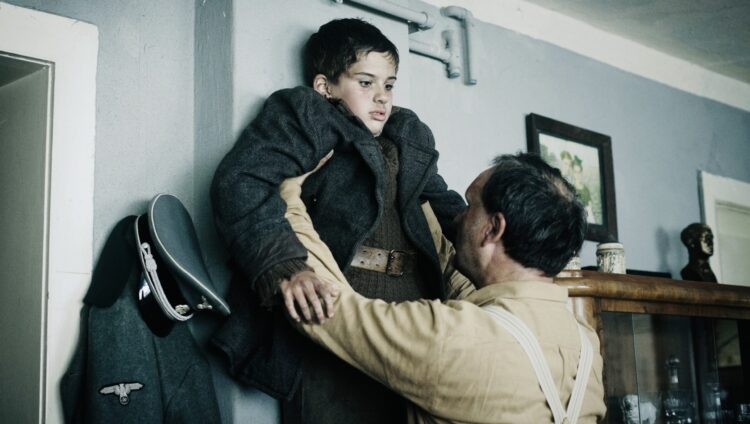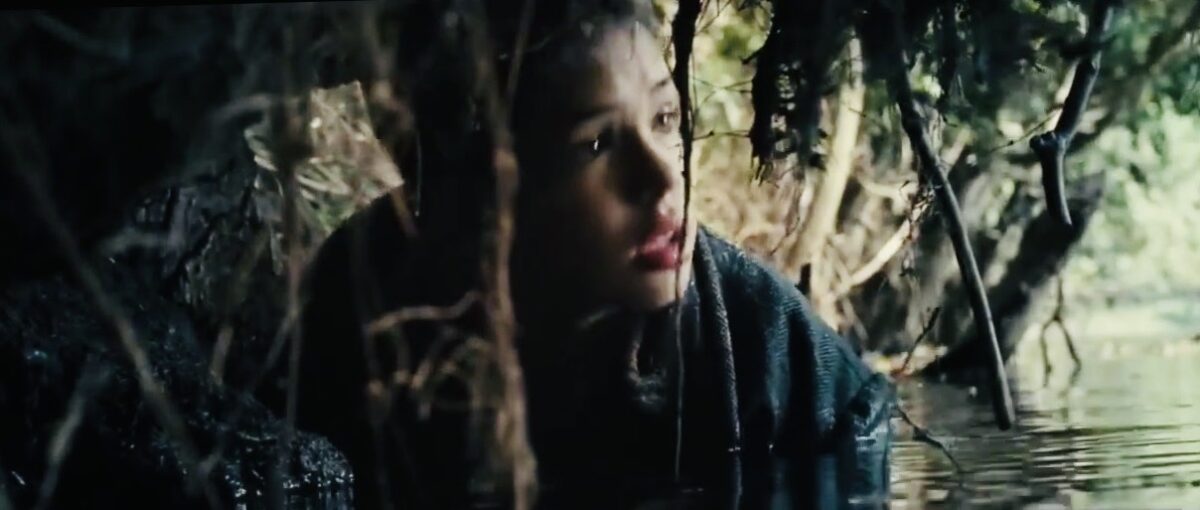Run Boy Run is one of six films being screened free of charge by the Chaiflicks streaming service in honor of International Holocaust Remembrance Day on January 27. They will be available from January 26 to January 28.
Adapted from a novel by Uri Orlev, and directed by Pepe Danquart, this absorbing movie is based on real events. In 1942, an eight-year-old Jewish boy named Srulik Fridman escaped from the Warsaw ghetto and spent the next three harrowing years hiding in forests, dodging German patrols, and working on farms disguised as a Polish Catholic.
It’s a story of survival against the greatest of odds, and it is often heart-wrenching, a commentary on human behavior under duress. The theme overlaps with Jerzy Kosinski’s 1965 novel, The Painted Bird, which is autobiographical.
The first scene in Run Boy Run sets the tone. An unidentified boy is seen walking across a snowy field in rural Poland in the winter of 1942. He’s utterly alone and must depend on his wits to survive in this harsh and unforgiving landscape. Cold and exhausted, he approaches a remote farm, spies a jacket and tries to steal it. A farmer beats him, but Srulik escapes into the woods. He is portrayed by the Polish twins Kamil and Andrzej Tkacz, who deliver terrific performances.
The film unfolds mainly in Polish, but also in German, Yiddish and Hebrew, and is replete with flashbacks. In the first one, Srulik’s father dispenses sound advice. He advises him to conceal his Jewish background and pose as a Christian, urges him to be strong and brave, and implores him to survive.

In the next flashback, six months earlier, Srulik meets a group of Jewish boys and girls in a forest. They, too, have gone into hiding. As they steal a farmer’s food, the angry farmer grabs one of the boys and shouts, “Damn you, filthy Jew.”
The Poles in this film, however, are not uniformly antisemitic. As Srulik continues his arduous journey, he also meets Poles who are kind and helpful. The German soldiers on the hunt for Jews are depicted as hateful and evil monsters.
Luckily enough, Srulik finds shelter with a woman whose husband and son have joined a band of partisans. Srulik identifies himself as Jurik Staniak to his hostess, Magda (Elisabeth Duda). Realizing he’s Jewish and needs to be disguised as a Catholic, she teaches him the fundamentals of Christian prayer and gives him boots and a crucifix to wear.

After a while, he leaves and and finds shelter with another farmer in the vicinity. When the farmer’s bigoted son calls him a Jew and threatens to inform the Germans, he flees.
A middle-aged Polish couple in a horse-drawn cart offer him work for food, but they’re scoundrels, turning him in to the Germans for a reward. The German officer who interrogates him likes Srulik. “You’re a nice boy,” he says. “Too bad you’re Jewish.”

Srulik escapes with German soldiers in hot pursuit. Under his assumed name, he finds work on a farm owned by an ethnic German woman. When he seriously injures his hand in an accident, she kindly agrees to pay the hospital bill. The Polish doctor who’s due to attend to his wound balks. “I’m not operating on a Jew,” he says brusquely. One of his colleagues intervenes and volunteers to perform the operation.
In the autumn of 1943, he leaves the hospital, having been tipped off that the Germans are poised to arrest him. A friendly Pole arranges for a boatman to take him to safety down river. When Srulik offers the man a pear, he blurts out an antisemitic barb: “When did you people become so generous?”
Srulik looks for another place to lie low, but doors are repeatedly slammed in his face. He returns to Magda’s house, and she hides him. Magda pays a high price for her generosity of spirit.
As Srulik walks eastward, away from German lines, he encounters advancing Red Army units. He finds a place to stay and begins to feel comfortable with the Polish family that has taken him in. But when a representative from a Jewish orphanage in Warsaw arrives and advises him to leave, Srulik must decide where his long-term future lies.
Run Boy Run, a German-French production, draws you in inexorably and maintains its grip. It’s that kind of a compelling movie.
